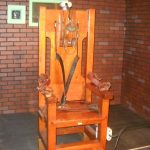Almost Half of Aspiring Barristers Fail Ethics Exam

In the United Kingdom, 43% of those who sat this year’s Bar Professional Training Course exam failed the ethics section.
The results are concerning – after all, lawyers are supposed to act ethically in the delivery of legal services and their dealings with clients and a range of professional bodies.
The percentage of hopeful barristers passing the ethics component has been declining since 2011. In that year, 85% of applicants passed the section. The percentage dropped to 65.5% in 2012. And some are predicting that less than half of applicants will pass next year’s exam!
Applicants are blaming the exam itself, saying it was badly worded and confusing. But the Bar Standards Board disagrees, saying that:
“We are confident that this examination … was a fair and appropriate assessment.”
The Situation in NSW
The NSW Bar Association holds exams in Practice and Procedure, Evidence and Ethics.
Candidates are required to achieve a mark of 75% to pass the exam. In 2015, 232 applicants sat the exam and anecdotal evidence suggests that the failure rate hovered at around 50%.
Those who manage to pass the exam are required to complete the Bar Practice Course before they can become barristers.
Professional Misconduct
In 2014, a lawyer by the name of Mr van Es was struck off the roll of practitioners after attempting to cheat the NSW Bar Association’s ethics exam.
Participants were allowed to take certain “permitted materials” into the exam, but an examiner noticed that Mr van Es had an unusually large bundle of loose papers with him. The examiner directed Mr van Es to leave the room as a result.
CCTV footage showed that once outside, Mr van Es stuffed papers into his trousers and later tried to re-enter the room to finish the exam.
The case went before the NSW Court of Appeal, where Mr van Es was not only struck off, but ordered to pay legal costs amounting to $11,000.
The issue was not only that Mr van Es had cheated – but that he later lied to the Bar Association about his conduct.
The Court found that Mr van Es “owed an obligation of candour in his dealings with the Bar Association”, and the conduct was sufficient to justify him being “struck off”.
The Obligation of Candour
The duty of candour was best outlined in the 1947 High Court case of Re Davis.
That case involved a barrister who had a criminal conviction for a break and enter that had occurred when he was 20 years old.
The barrister failed to disclose this conviction to the Barrister’s Admissions Board when applying to become a barrister.
The main issue in the case was not that the barrister had a criminal record, but that he had intentionally kept this information from the Board. As barristers play such an important role in the administration of justice, they are under an obligation to fully disclose such matters to relevant bodies.
The Judge in that case stated:
“The fulfilment of that obligation of candour with its attendant risks proved too painful for the appellant, and when he applied to the Board for his certificate he withheld the fact that he had been convicted.
In those circumstances the conclusion that he is not a fit and proper person to be made a member of the Bar is confirmed.”
Ethical obligations such as the duty to fully and frankly disclose relevant matters are something that bodies like the Law Society and Bar Association take very seriously, and so they should.





